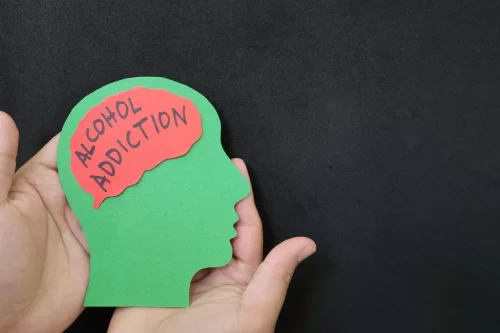
In hospital, your medications are adjusted to control your blood pressure, but you aren’t drinking alcohol at that time. Back home, if you start drinking regularly again and your blood pressure changes, your GP can alter your medications. Too much alcohol can raise blood pressure and weight, increasing risk of a heart attack, stroke and type 2 diabetes. Senior Cardiac Nurse Christopher Allen finds out more from Professor Sir Ian Gilmore, Consultant Physician and Gastroenterologist at Royal Liverpool University Hospitals. “The stress level of someone in the midst of a cancer workup is likely quite high and may not reflect the typical stress level of an average person,” he notes.
Can drinking raise my blood pressure?

Some research suggests that having as little as one to three alcoholic drinks each day may increase your risk for atrial fibrillation, the most common type of irregular heart rhythm. Afib causes symptoms including lack of energy, dizziness, shortness of breath, heart palpitations and chest pain, and if left untreated can lead to serious complications. Alcoholic cardiomyopathy is https://ecosoberhouse.com/ a form of heart disease caused by alcohol abuse. Long-term alcohol abuse weakens and thins the heart muscle, affecting its ability to pump blood. When your heart can’t pump blood efficiently, the lack of blood flow disrupts all your body’s major functions.
Hypertension

Based on these data, acute ethanol-induced injury appears to be mediated by ethanol and acetaldehyde; the latter may play a more important role. Ethanol-induced changes may be related to oxidative or nonoxidative pathways of ethanol metabolism. More than one mechanism may be activated and may lead to the multitude of ethanol-induced changes in cellular proteins and cell function. As reviewed in the text, data from pharmacologic and transgenic approaches revealed an important role for oxidative stress and the hormone angiotensin II. Pharmacologic therapy should include goal-directed heart failure therapy as used in idiopathic dilated cardiomyopathy with reduced ejection fraction. This includes a combination of beta-blockers, an angiotensin-converting enzyme inhibitor, diuretics, aldosterone receptor antagonist and angiotensin blocker-neprilysin inhibitor (if LVEF is less than or equal to 40%).
Other factors to keep in mind

To put the importance of BP control into perspective at a population level, a 2‐mmHg increase in BP increases mortality from stroke by 10% and from coronary artery disease (CAD) by 7% 28. In fact, Rehm has argued that methodological issues render the utility of cohort studies assessing the relationship between alcohol use and all‐cause mortality as ‘almost meaningless’ 10. More recently, Cosmi and colleagues (2015) examined the effects of daily wine consumption in subjects enrolled in an Italian trial of heart failure patients (mean age ~67), most of whom had reduced ejection-fraction heart failure. Different levels of daily wine consumption (i.e., sometimes, 1 to 2 glasses/day, and ≥3 glasses/day) had no effect on fatal or nonfatal outcomes (e.g., hospitalization for a CV event).
- If you compare these abstainers to drinkers, the drinkers appear healthier by comparison, but that’s not necessarily due to the alcohol.
- The study authors are now focusing on other interventions — such as meditation or exercise — that might lower the brain’s stress activity without the potentially harmful effects of alcohol.
- People with alcoholic cardiomyopathy often have a history of heavy, long-term drinking, usually between five and 15 years.
- In most patients, exercise or pharmacologic stress testing with echocardiographic or nuclear imaging is an appropriate screening test for heart failure due to coronary artery disease.
- Not surprisingly, alcohol consumption has complex and varying effects on platelet function.
Mitochondrial Dysfunction and Changes in Mitochondrial Bioenergetics
This activity examines when this condition should be considered on differential diagnosis. This activity highlights the role of the interprofessional team in caring for patients with this condition. Long-term heavy alcohol consumption induces adverse histological, cellular, and structural changes within the myocardium. These mechanisms contribute to the myocyte cellular changes that lead to intrinsic cell dysfunction, such as sarcoplasmic reticular dysfunction and alcoholic heart changes in intracellular calcium handling and myocyte loss. However, modulatory influences related to drinking patterns, genetic susceptibility, nutritional factors, ethnicity, and gender also many play a role (Piano and Phillips 2014) (figure 4). Altered platelet responses (e.g., increased platelet activation/aggregation) leads to blood-clot formation (or thrombosis) in certain CV conditions.
- It’s important to note that alcoholic cardiomyopathy may not cause any symptoms until the disease is more advanced.
- More than one cellular event may be happening at the same time, and, as with other chronic health conditions, the relevant mechanisms may be synergistic and interrelated.
- Therefore, as in animal studies, the effects of ethanol on endothelial function in humans likely depend on the dose and duration of ethanol consumption.
- The newest evidence suggests benefits for heart health of drinking alcohol are less and apply to a smaller group ofthe population than previously thought.
- Diastolic dysfunction is the earliest sign of ACM and is usually seen in approximately 30% of patients with a history of chronic alcohol abuse with no evidence of systolic dysfunction nor left ventricle hypertrophy.
Diagnosis
More than one cellular event may be happening at the same time, and, as with other chronic health conditions, the relevant mechanisms may be synergistic and interrelated. The primary treatment for ACM involves complete abstinence from alcohol or other drugs. However, some studies show that moderating alcohol consumption may lead to similar health outcomes. On average, a regular heart rate is about 60 to 100 beats per minute when your body is at rest. But drug addiction treatment alcohol can lead to your heart rate temporarily jumping up in speed, and if it goes over 100 beats per minute, it can cause a condition called tachycardia. Too many episodes of tachycardia could lead to more serious issues like heart failure or going into irregular rhythms, which can cause heart attack and stroke.

- But there are ways that alcohol affects your body over time that are important to understand.
- A 2022 study showed a link between moderate drinking (eight to 16 drinks per week) and a lower risk of type 2 diabetes, but specifically among people who drank alcohol with meals.
- Because of space limitations, not all of the excellent scientific work on alcohol and the cardiovascular system could be assessed in this review.
- Mitochondria play an essential role in cellular metabolism, and disruption of their function can have profound effects on the entire cell.
- The natural history of patients with alcoholic cardiomyopathy (AC) depends greatly on each patient’s ability to cease alcohol consumption completely.
A 2022 study showed a link between moderate drinking (eight to 16 drinks per week) and a lower risk of type 2 diabetes, but specifically among people who drank alcohol with meals. Many short-term trials that randomly assign people to drink either alcohol or a nonalcoholic beverage show lower blood sugar levels and better insulin sensitivity among people who drink moderate amounts of alcohol. While these biomarkers aren’t a perfect representation of diabetes risk, they’re pretty close, says Dr. Mukamal. People with diabetes are twice as likely to have heart disease as people without the condition. Increased autophagy as a possible mechanism underlying the adverse myocardial effects of ethanol is intriguing. This is especially true in light of the relationship between a sensor of stress (mTOR) and nutrient deprivation and how essential autophagy is to cell survival.

